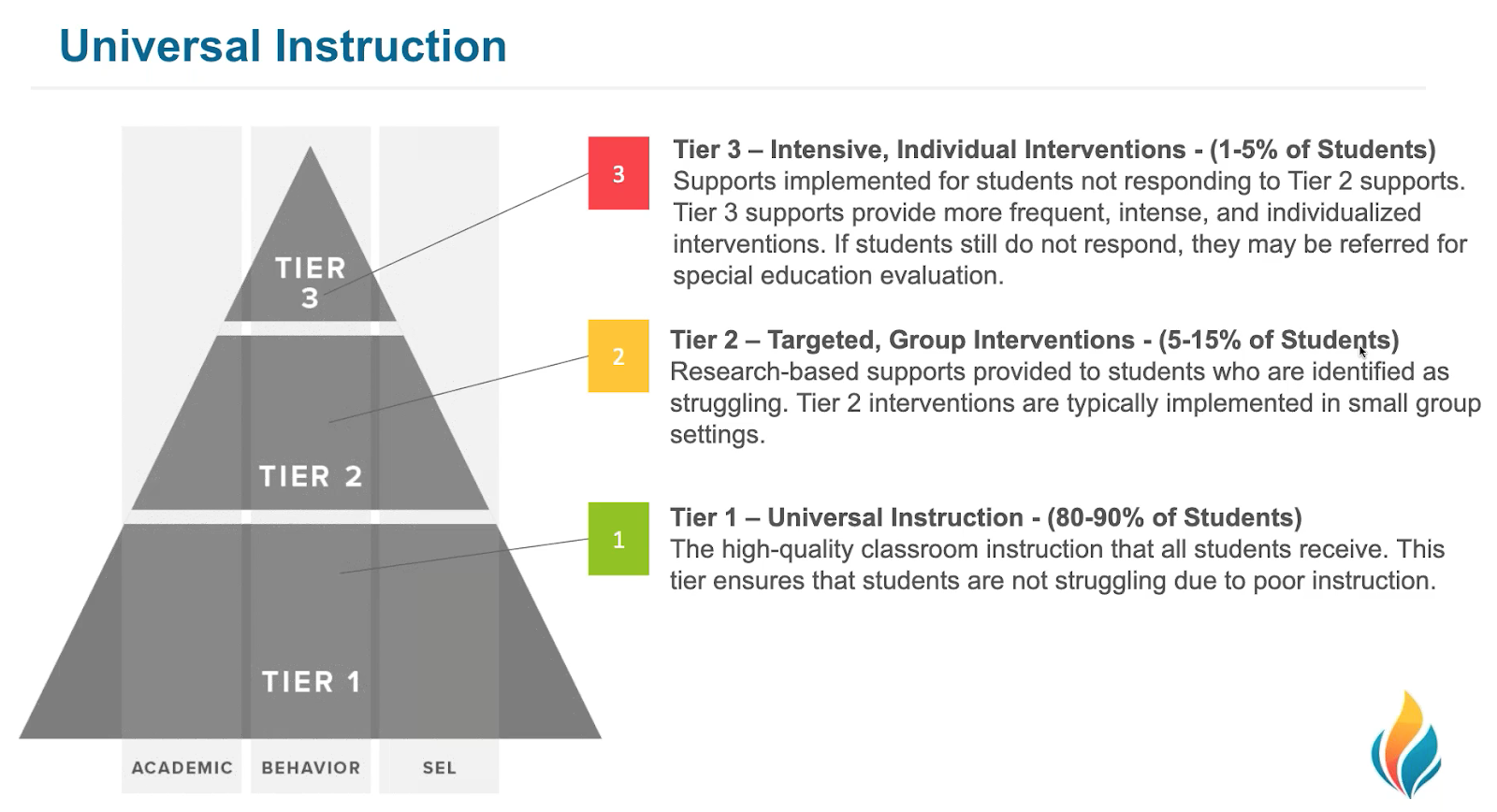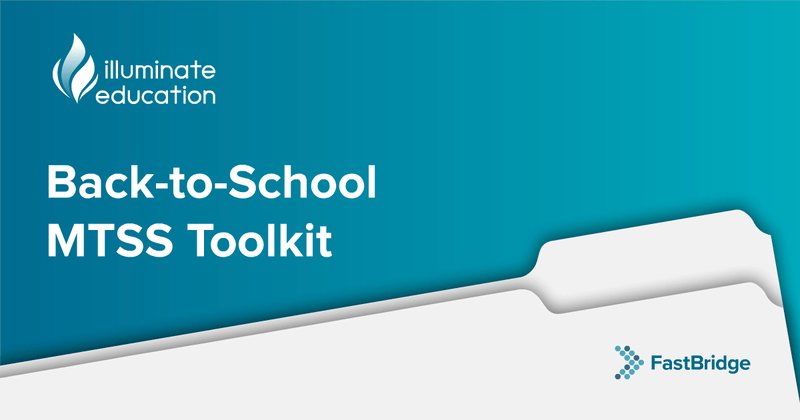Assessments are woven into the fabric of schools. The first assessment occurs each morning when teachers take attendance and record who is present and absent (or late). Throughout the day, educators complete numerous formative assessments, surveying the class on who was able to solve a math problem correctly on their whiteboards, walking around the room to assess who is using correct grammar in a writing assignment, and evaluating comprehension to a class story. Teachers also complete summative assessments through weekly unit quizzes, regular book reports and via quarterly report card grades.
Within the school setting, teachers regularly assess social-emotional and behavioral (SEB) concerns as well. These include office discipline referrals for breaking school rules, formal evaluations related to attention or task persistence concerns and nominations for counseling due to peer relationship problems. Teachers are implicitly and explicitly evaluating students’ progress in learning and SEB functioning throughout the school day.
The Importance of Accurate Data
COVID-19 resulted in the need to physically distance students and educators. By and large, teachers have been successful at making the best of a tough situation and continuing to provide students with an appropriate learning experience, in spite of the disruption. However, one unintended side effect of the move to remote online instruction is the loss of formative and summative assessment opportunities embedded into the school day.
Even a simple assessment such as taking class attendance takes on added complexity within the current home instruction environment. A student who is not present for an online classroom meeting could be missing for multiple reasons: disorganization/poor time management, resource allocation problems (e.g., a parent needs the family tablet for a work meeting), lack of motivation, social withdrawal, disrupted sleep patterns, or an actual sickness. This situation underscores how assessments that were previously taken for granted now take on added complexity as well as urgency.
Beyond attendance, teachers are concerned about academic standing and achievement. This is where a formal screening and progress monitoring framework, such as that within the FastBridge assessment system, can have real merit. Scholars are currently concerned about what they are terming the “COVID-19 slide.”
It has been well established that children, on average, lose academic gains present at the end of the school year after two months of summer vacation. Given that many schools discontinued in-classroom instruction in March, presuming schools return in the fall, the impact of the “slide” may be greater. This estimate may also be optimistic, given that most would agree that two or three months of home instruction in the spring, while a tremendous effort on the part of teachers, is not entirely comparable to typical in-class instruction.
Thus, educators need screening and progress monitoring measures that are reliable, valid and normed for all students now more than ever. Only with accurate data can teachers identify general areas in need of remediation for a class, as well as pinpoint specific skill deficits in individual students who need more intensive intervention and support.
The Impact of Learning Environments
Perhaps the most unpredictable and unknown area for assessment relates to the impact of the current home learning environment on students’ SEB functioning. For some students, a classroom filled with validating adults, smiling peers and predictable routines was the best part of their day. For others, a skilled educator was able to model appropriate social behaviors, mediate conflicts and encourage emotional and social growth. This was often supported by the strong Tier 1 and Tier 2 interventions in place in school.
There is no doubt that the loss of this supportive environment has been one of the most pronounced losses in the move to largely self-directed work in the home environment. Without the intraday and interday observations of social skills and behaviors teachers are used to, there will be gaps in knowledge that could potentially result in children slipping through the cracks.
To prevent this, regular screenings and progress monitoring may be more important than ever to pick up on irritability, withdrawal, frustration, inattention, anxiety, or defiance. SEB assessments can also assess student strengths related to resilience, social skills and emotional growth. Teachers may need to rely on SEB screenings to a greater extent because their everyday interactions, and interpretation of these interactions within the context of a 20-student classroom, are not available to “fill in the blanks.”
This is an unusual time in schools to say the least. The reliance on trustworthy assessments across student functional domains is essential to identify problems that may be present, determine areas of strength and to serve as a baseline for students as they re-enter typical school settings going forward. With these tools, teachers can best support students to rise above a challenging time.
**** The FastBridge assessment system offers teachers one simple, integrated solution for screening and monitoring students across math, reading and SEB functioning. To learn how you can use FastBridge assessments to inform teaching and support students’ learning needs — in class and remotely — contact us to schedule a demo.








